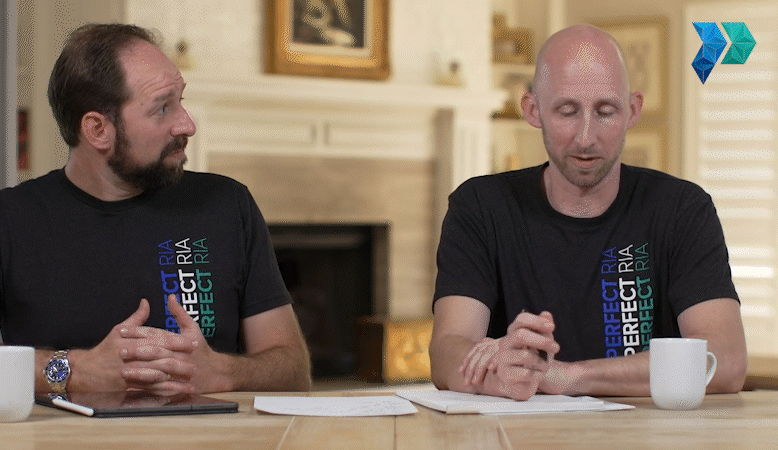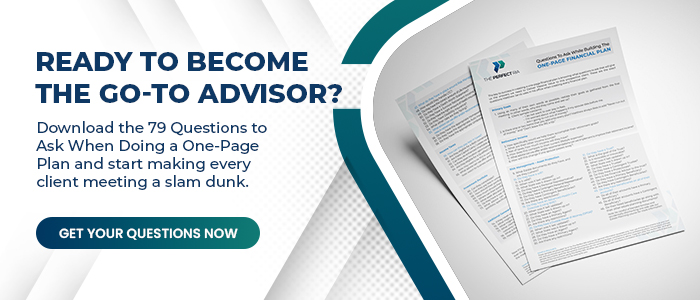Value Adds are Friggin Awesome, Here’s Why
Matthew Jarvis shares how he uses value adds to convert prospects and why you should start using value adds before your competition does.
5 min read

Financial Planner, CFP®
Don’t let their simple presentation fool you: value adds require tremendous work to execute successfully. For the advisors who can pull them off, value adds deliver massive value, delight clients, and pave the way for premium fees.
If happy clients or doubling your income isn’t reason enough to implement value adds in your office, then the fact that they are taking the industry by the storm should motivate you—you’re going to lose clients if you don’t get on board.
In fact, I have the following conversation with new prospects regularly:
Matthew Jarvis, CFPⓇ: Mr. and Mrs. Prospect, I’m sure your advisor has talked to you about guardrails/beneficiary designations/long-term care, etc.
Mr. and Mrs. Prospect: No, Matthew, I met with my advisor last week, and they never talked to us about this.
Matthew Jarvis, CFPⓇ: Oh. Okay. Well, this is something we do for all of our clients.
In my office, value adds are a slam-dunk for converting prospects to clients, and that’s how other advisors’ clients become my clients.
The premise for value adds is straightforward, to be considered a value add, a mailout must be:
- Easily understood by a 12-year-old
- Customizable for each client (but not custom-created for each client)
- Free of industry jargon—including percentages–use dollar amounts
- Actionable: the mailout needs to provide advice that the client can act on
Just sending a generic newsletter each quarter doesn’t cut it here. You need to provide valuable information specific to each client that they can act on.

What value adds do for your practice
Value adds do more than deliver massive value to your client; they help systematize your entire practice.
By implementing value adds, you’re able to get all of your clients on the same page at the same time. For example, if you keep to a solid value add rotation, you’ll know that every client’s beneficiary designations were updated during last year’s third quarter. There are no questions about who did what and when.
You’ll also have a framework that can guide you through every client meeting so you’ll have more consistency in your client approach. In my office, we discuss the one-page financial plan during every meeting and the upcoming value-add that we’ll be sending out next quarter.
This way, vital information is consistently presented to clients, and they’ll understand what the value-add means for their financial goals.
Powerful delegation tools
Unless you have six clients, you simply don’t have the time to manually pull up each client’s tax returns, review each return, and manually run every calculation. You’ll never be able to get through your client base in a reasonable amount of time, and more importantly, you’ll never be able to scale your practice.
Instead, you can use value adds to create a delegation system.
For Roth conversions, you could have team members input all the required data into a single spreadsheet and start looking for anomalies. You could even use the program to run calculations for you.
Or, when working on tax returns, your team could use the Retirement Tax Services 37-point checklist to review client tax returns. Your team can ensure everything is up to muster and flag potential problems for the advisor to review.
You can use simplified checklists to help your team collect and input data needed for the value-add. Data can be added to digital spreadsheets or run through our custom Infinity software, significantly reducing your team’s legwork.
Meet the needs of the majority
There will be instances where a value add may not apply to a client that quarter or should be pulled for a later date. Or, there may be value adds that simply don’t work for everyone.
Don’t get caught up in creating value-adds that suites 100% of your client base. Aside from using guardrails/buckets, 100% relevance is not feasible. Instead, shoot for sending value adds that fit 80-90% of your clients.
You may have a client who is single or recently widowed and may not need to talk about the long-term care value add right now. Or, maybe you already have a couple of clients with long-term care insurance, so this value-add wouldn’t provide extra value.
Conversely, you may have one-off value adds that only apply to a handful of clients instead of everybody. You may have a client who qualifies for an IRMA appeal letter value add because they meet specific qualifications. However, if you were to send this out to everyone, it would frustrate the clients who are in the excess IRMA bracket but don’t qualify for an appeal.
When deciding which value-adds need to be sent and which should be pulled for specific clients, you’ll need to use your best judgment. However, if you start pulling a lot of value adds and not sending them in mass, you may need to re-evaluate your processes. It’s possible that you didn’t set up the value add correctly.
Recycle value
Don’t fall into the temptation that you must create new value adds each year worthy of the Journal of Financial Planning—meaning they are of zero use to the client.
Value adds are supposed to be simple and reusable. You don’t need to create new ones every year.
In fact, Micah Shilanski, CFPⓇ, and I recycle our value adds every two years. Clients have short-term memory when it comes to this stuff; it helps them to get regular reminders.
Because the only constant in life is change, recycling value adds will also help your team systematically stay current on your client’s life changes. Divorce, death, or even changed minds regularly affect beneficiary designations and other aspects of the client’s financial plan.
Popular Topics
Is That OK With You?
One of the most significant differences between ‘good’ advisors and rock-star level advisors is
Still Holding Out on Surge™? 2023 Could Be Your Year
Micah Shilanski, CFP®, busts myths and misconceptions surrounding Surge meetings and shows how
Like Coke from a Coffee Mug: Run Your Best Client Meeting
Client meetings can be a dreaded part of a routine or you and your clients’ favorite part of your
Value Adds
If you are routinely providing clients with value adds in a consistent, efficient, and deliverable
5 Questions Every Advisor Should Ask
Matthew Jarvis, CFP®, answers five essential questions every advisor should ask to transform
What You Should
READ NEXT
How To Deliver The Most Value With A Tax Return
Matthew Jarvis, CFP®, shares how to overcome hurdles in getting client tax returns and how to make basic tax projections to deliver massive value to your
Is That OK With You?
One of the most significant differences between ‘good’ advisors and rock-star level advisors is their use of open-ended vs. closed-ended
5 Mistakes Advisors Make When Creating value adds
Matthew Jarvis, CFP®, discusses the five biggest mistakes advisors make when creating value adds for their
Start the change today!
Get our 3 most popular power sessions FREE. You and your team will learn about: Time Blocking, the One Page Financial Plan, and the “Buckets of Money” approach.




